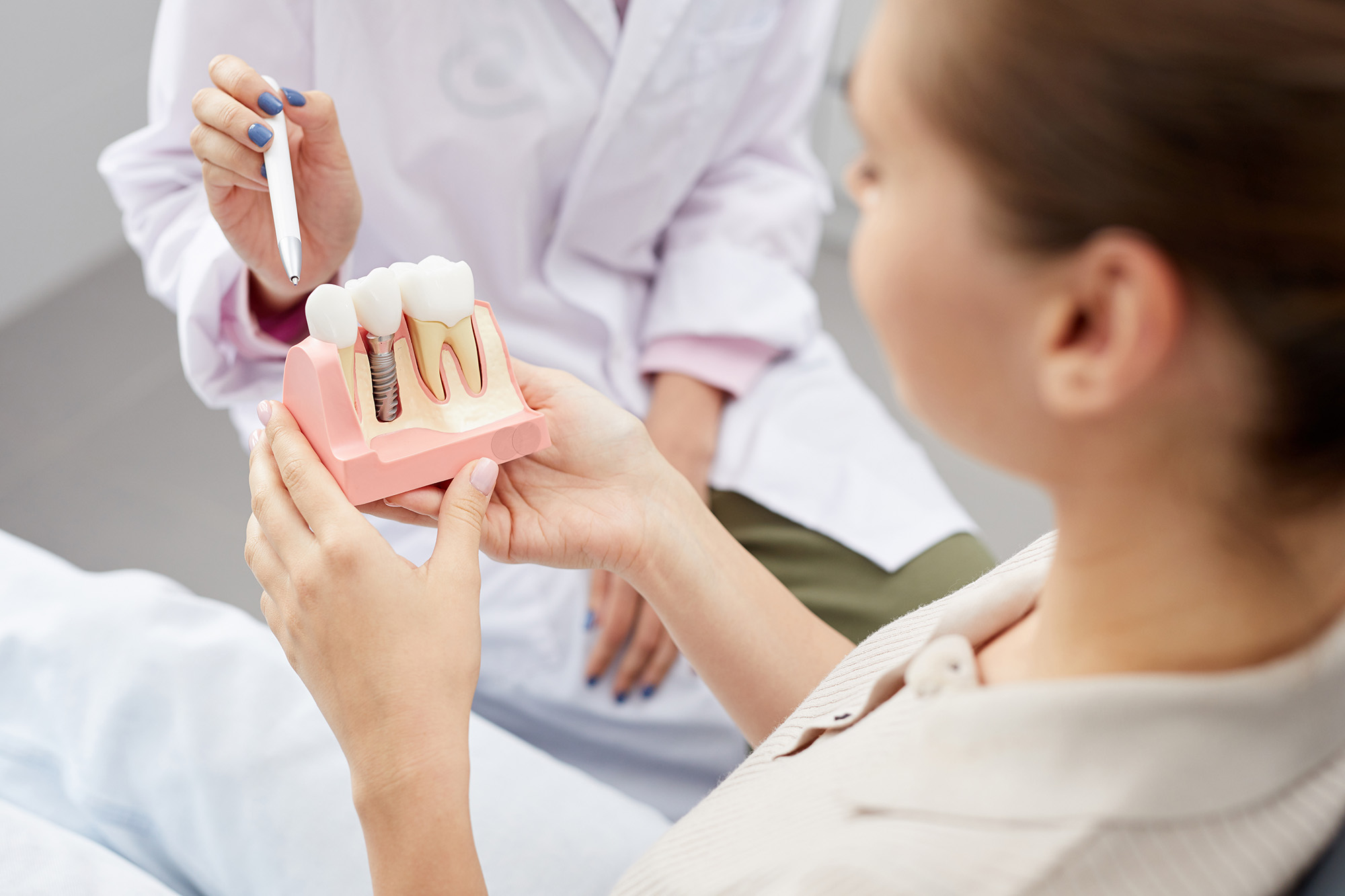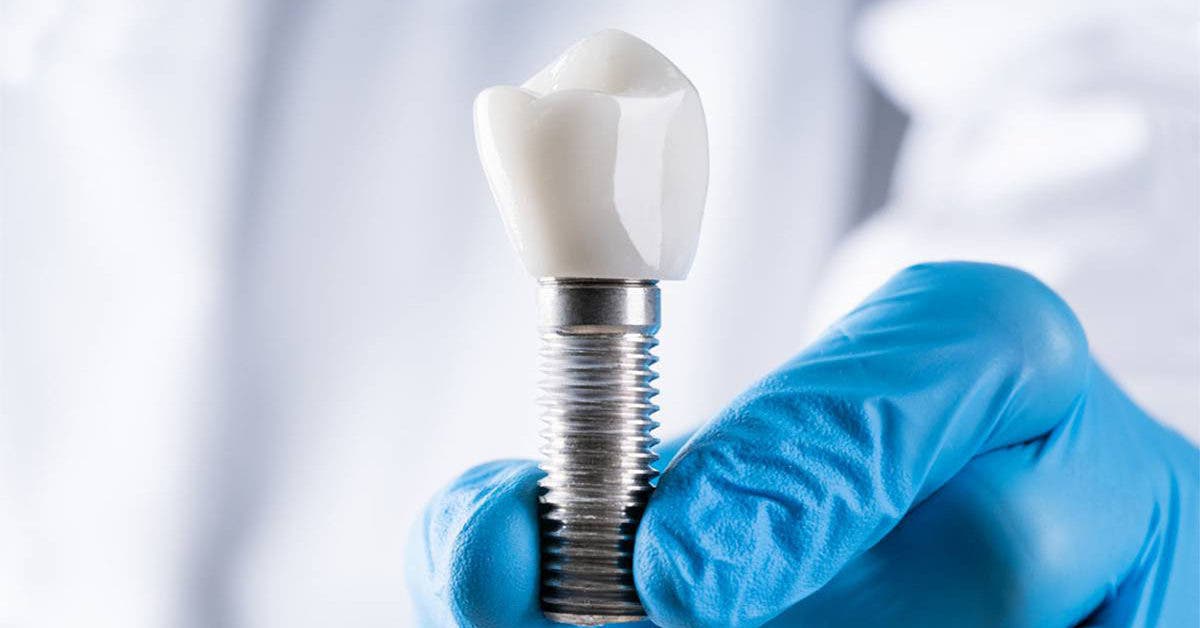Welcome to the world of confident smiles and impeccable dental health! If you’ve been grappling with the discomfort and embarrassment of a missing tooth, you’re not alone. Millions of people worldwide face similar challenges, and fortunately, modern dentistry offers a reliable solution: single tooth implants. At join 4smile, we believe that everyone deserves a radiant smile that exudes confidence and health. We will delve deep into the world of single tooth implants, exploring their benefits, the procedure involved, and why they are the superior choice for tooth replacement. Whether you’re considering an implant for the first time or looking to understand the process better, this comprehensive guide is here to provide you with all the information you need.
What Are Single Tooth Implants?
Single tooth implants are a revolutionary dental solution designed to replace a missing tooth with a permanent, natural-looking alternative. Unlike dentures or bridges, which may require the alteration of adjacent teeth or rely on removable fixtures, a single tooth implant is securely anchored into your jawbone. This implant consists of three main components: the implant post, the abutment, and the crown. The implant post, typically made of titanium, acts as a root for the new tooth, providing a stable and durable foundation. The abutment connects the implant post to the crown, which is the visible part of the tooth that is custom-made to match the color and shape of your natural teeth.
The journey to achieving a confident smile with a single tooth implant begins with a thorough consultation with a dental professional. During this consultation, your dentist will assess your oral health, take detailed scans and impressions of your teeth, and develop a personalized treatment plan tailored to your specific needs. The goal is to ensure that the implant not only restores functionality but also blends seamlessly with your existing teeth, enhancing your overall appearance.

Benefits of Single Tooth Implants
The advantages of choosing single tooth implants over other tooth replacement options are numerous and compelling. First and foremost, single tooth implants offer unmatched stability and durability. Because the implant post is anchored directly into the jawbone, it provides a secure foundation that mimics the strength and function of a natural tooth root. This stability allows you to eat, speak, and smile with confidence, without worrying about the implant shifting or becoming loose.
Another significant benefit is the preservation of your jawbone and facial structure. When a tooth is lost, the underlying jawbone can begin to deteriorate due to lack of stimulation. Single tooth implants help to prevent this bone loss by stimulating the jawbone just like a natural tooth root. This not only maintains the integrity of your jawbone but also prevents the sunken appearance that can occur with prolonged tooth loss.
Furthermore, single tooth implants do not require the alteration of adjacent teeth. Traditional bridges often involve grinding down the healthy teeth on either side of the gap to support the prosthetic tooth. In contrast, a single tooth implant stands independently, preserving the health and structure of your neighboring teeth. This means that your natural teeth remain intact and unaltered, contributing to your long-term oral health.
The Procedure of Getting a Single Tooth Implant
The process of receiving a single tooth implant involves several stages, each meticulously planned and executed to ensure the best possible outcome. The journey begins with a comprehensive consultation and examination by your dentist. During this initial visit, your dental professional will evaluate your oral health, take detailed X-rays, and discuss your treatment goals. This information is crucial for developing a customized treatment plan that addresses your unique needs and ensures the success of the implant.
Once the treatment plan is established, the next step is the placement of the implant post. This surgical procedure is typically performed under local anesthesia to ensure your comfort. The dentist will make a small incision in the gum tissue to expose the jawbone and create a precise hole where the implant post will be inserted. The titanium post is then carefully positioned into the jawbone, and the gum tissue is sutured back in place. Over the next few months, a process called osseointegration occurs, during which the jawbone fuses with the implant post, creating a solid and stable foundation for the new tooth.
After osseointegration is complete, the abutment is attached to the implant post. This involves a minor surgical procedure to expose the top of the implant post and secure the abutment in place. The abutment serves as a connector between the implant post and the final crown. Impressions of your teeth are taken to create a custom-made crown that matches the color, shape, and size of your natural teeth. Once the crown is ready, it is attached to the abutment, completing the restoration process and giving you a fully functional and aesthetically pleasing tooth.

Preparing for a Single Tooth Implant
Preparation is key to the success of a single tooth implant. Before undergoing the procedure, it’s essential to ensure that your oral health is in optimal condition. This includes addressing any existing dental issues, such as gum disease or tooth decay, which could affect the implant’s success. Your dentist will perform a thorough examination and may recommend treatments to improve your oral health before proceeding with the implant.
In addition to addressing any dental issues, proper planning and communication with your dental professional are crucial. During your consultation, be sure to discuss your medical history, any medications you are taking, and your expectations for the outcome of the implant. This information will help your dentist develop a personalized treatment plan that takes into account your specific needs and goals.
It’s also important to follow any pre-operative instructions provided by your dentist. This may include guidelines on eating and drinking before the procedure, as well as instructions for managing anxiety or discomfort. By following these instructions and maintaining open communication with your dental team, you can ensure a smooth and successful implant experience.
The Implant Surgery: What to Expect
Understanding what to expect during the implant surgery can help alleviate any anxiety or concerns you may have. The procedure typically begins with the administration of local anesthesia to numb the area and ensure your comfort. In some cases, sedation may be offered to help you relax during the surgery.
Once the anesthesia has taken effect, the dentist will make a small incision in the gum tissue to expose the jawbone. Using specialized instruments, a precise hole is created in the bone where the implant post will be inserted. The titanium post is then carefully placed into the hole, and the gum tissue is sutured back in place. The entire procedure usually takes about an hour, depending on the complexity of the case.
After the implant post is placed, a temporary healing cap may be attached to protect the post and promote healing. This cap will be replaced with the abutment and final crown once osseointegration is complete. The healing process typically takes several months, during which time the implant post will fuse with the jawbone to create a stable and secure foundation.

Recovery and Aftercare
Proper aftercare is essential to ensure the success and longevity of your single tooth implant. Immediately following the surgery, you may experience some swelling, bruising, and discomfort in the implant area. Your dentist will provide you with instructions on how to manage these symptoms, which may include taking prescribed pain medication, applying ice packs to reduce swelling, and eating soft foods to avoid putting pressure on the implant site.
Maintaining good oral hygiene is crucial during the recovery period. Your dentist will recommend specific brushing and flossing techniques to keep the implant area clean and free from infection. It’s important to follow these recommendations diligently and attend all follow-up appointments to monitor the healing process.
In addition to maintaining good oral hygiene, avoiding certain habits can help protect your implant and promote healing. Smoking, for example, can impede the healing process and increase the risk of complications. Your dentist may advise you to quit smoking or avoid it altogether during the recovery period. Additionally, avoiding hard or chewy foods that could damage the implant site is essential.
Potential Risks and Complications
While single tooth implants have a high success rate, it’s important to be aware of potential risks and complications. One of the most common risks is infection at the implant site, which can occur if bacteria enter the area during or after the surgery. To minimize this risk, your dentist will provide you with detailed instructions on how to care for the implant site and maintain good oral hygiene.
Another potential complication is implant failure, which can occur if the implant post does not properly fuse with the jawbone during osseointegration. Factors that can contribute to implant failure include poor bone quality or density, underlying health conditions, and smoking. If implant failure occurs, your dentist may recommend additional treatments, such as bone grafting, to improve the chances of success.
Nerve damage is another possible complication, although it is relatively rare. During the implant surgery, the dentist must take care to avoid damaging the nerves that run through the jawbone. If nerve damage does occur, it can result in numbness, tingling, or pain in the affected area. Your dentist will take precautions to minimize this risk and will discuss any concerns you may have before the procedure.

Comparing Single Tooth Implants to Other Dental Solutions
When considering tooth replacement options, it’s important to understand how single tooth implants compare to other solutions. One common alternative to single tooth implants is a dental bridge, which involves creating a prosthetic tooth that is supported by adjacent teeth. While bridges can be an effective solution, they often require the alteration of healthy teeth and may not provide the same level of stability and durability as implants.
Dentures are another alternative, particularly for patients who are missing multiple teeth. While dentures can be a cost-effective solution, they are often less stable and comfortable than implants. Dentures may also require regular adjustments and maintenance, and they do not provide the same level of bone stimulation as implants, which can lead to bone loss over time.
In contrast, single tooth implants offer several advantages over bridges and dentures. Because they are anchored directly into the jawbone, implants provide a stable and durable foundation that mimics the function of a natural tooth. This stability allows you to eat, speak, and smile with confidence, without worrying about the implant shifting or becoming loose. Additionally, implants help to preserve the jawbone and maintain the integrity of your facial structure, which can prevent the sunken appearance that often occurs with prolonged tooth loss.
Success Rates and Longevity of Single Tooth Implants
Single tooth implants have a high success rate, with studies showing success rates of up to 95% or higher. The longevity of implants depends on several factors, including the quality of the implant materials, the skill of the dental professional, and the patient’s oral hygiene and overall health. With proper care and maintenance, single tooth implants can last for many years, often providing a permanent solution for missing teeth.
Maintaining good oral hygiene is essential to the long-term success of your implant. This includes regular brushing and flossing, as well as routine dental check-ups and cleanings. Your dentist will provide you with specific instructions on how to care for your implant and monitor its health over time.
In addition to maintaining good oral hygiene, it’s important to avoid habits that could damage your implant, such as smoking or chewing on hard objects. By following your dentist’s recommendations and taking good care of your implant, you can enjoy the benefits of a confident smile for many years to come.
FAQs
How long does the implant procedure take?
The implant procedure typically takes several months to complete, including the initial consultation, implant placement, and the final placement of the crown. The exact timeline can vary depending on individual factors, such as the patient’s oral health and the need for additional treatments, such as bone grafting.
Is the implant procedure painful?
Most patients report minimal discomfort during the implant procedure, thanks to local anesthesia and sedation options. Any post-operative pain or swelling can usually be managed with prescribed pain medication and ice packs.
How do I care for my single tooth implant?
Caring for a single tooth implant involves maintaining good oral hygiene, including regular brushing and flossing, and attending routine dental check-ups and cleanings. Your dentist will provide specific instructions on how to care for your implant.
Can anyone get a single tooth implant?
Most people who are in good overall health and have sufficient jawbone density are candidates for single tooth implants. However, certain medical conditions or lifestyle factors, such as smoking, may affect the success of the implant. Your dentist will assess your suitability for the procedure during your consultation.
How long do single tooth implants last?
With proper care and maintenance, single tooth implants can last for many years. Often providing a permanent solution for missing teeth. The longevity of the implant depends on factors such as the quality of the implant materials, the skill of the dental professional. And the patient’s oral hygiene and overall health.
Conclusion
Achieving a confident smile with single tooth implants is a journey that involves careful planning. Expert dental care, and a commitment to maintaining good oral health. The benefits of single tooth implants, including their stability, durability, and natural appearance, make them a superior choice for tooth replacement. By choosing a skilled and experienced dental professional, such as the team at join 4smile, you can ensure the success of your implant and enjoy the long-term benefits of a healthy, beautiful smile.
We have explored the many facets of single tooth implants. From the initial consultation and procedure to the recovery and aftercare. We have also highlighted the potential risks and complications. Compared implants to other dental solutions, and discussed cost considerations and success rates. Through testimonials and success stories. We have seen the positive impact that single tooth implants can have on a person’s life.




